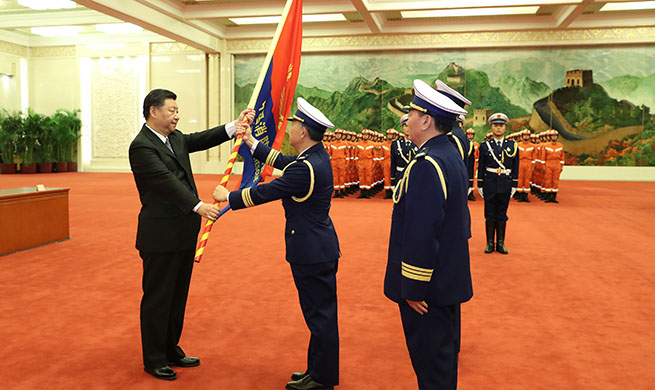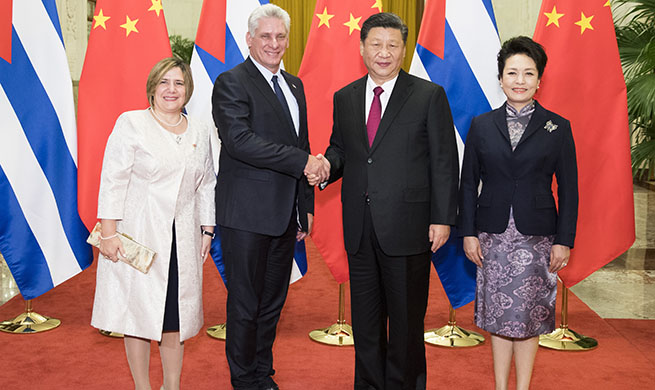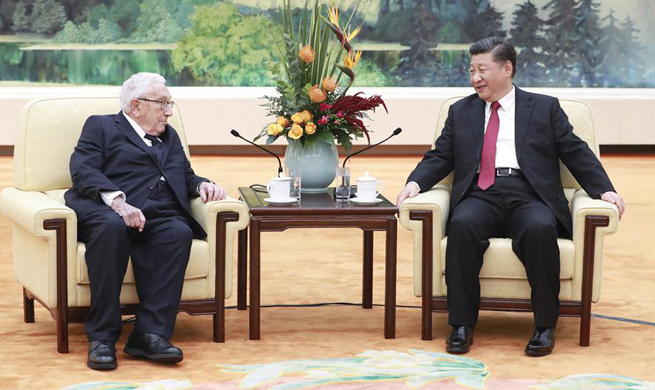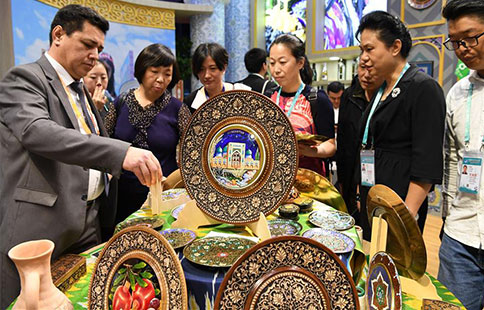TOKYO, Nov. 9 (Xinhua) -- Japan's Kyoto University said Friday that it has performed the world's first transplant of induced pluripotent stem (iPS) cells to treat Parkinson's disease.
According to the university, the operation was conducted in October, with nerve cells derived from iPS cells transplanted into the brain of a patient in his 50s.
During the operation that lasted about three hours, surgeons made a hole on the head of the patient and some 2.4 million cells were transplanted into it, the university told a press conference.
The patient is in recovery now, with no hemorrhages in the brain or other harmful symptoms, according to the university.
The clinical test, to be conducted on seven patients in their 50s and 60s who suffered from Parkinson's disease for more than five years, was aimed at verifying the safety of such a treatment, and the patients will be monitored for a long term.
Induced pluripotent stem cells, or iPS cells, are a type of pluripotent stem cell that can propagate indefinitely and give rise to every other cell type in the body, and are seen as a promising tool in the field of regenerative medicine.
Parkinson's disease is a long-term degenerative disorder of the central nervous system that involves reduction of dopamine-producing neurons and results in shaking of hands and feet, slowness of movement and stiffness in the body.
There is currently no cure for Parkinson's disease, with treatment mainly directed at relieving symptoms.













